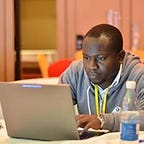Automating radio fact checking in Africa
The tool we seek to develop will start by automating statistical claims made on radio against already verified statistical information.
Background
The accuracy of news has been impacted by fake news often developed from speculation for political and personal gain. This news often ends up unverified on radio, the most widely used communication medium in Uganda and Africa. This is attributed to the fact that radio stations have few reporters, and depend on reproducing of content shared by external journalists.
Journalists and reporters find the manual process of fact-checking tedious and costly in terms of time and money. This leads to a lot of misinformation among the population due to a desire to break the story as soon as possible. The fear of misinformation has led to Governments in Africa that include Uganda, DR Congo, Ethiopia and Zimbabwe starting a trend of shutting down social media during presidential elections, or during critical moments they believe will be exploited to incite violence as was seen in 2016.
Recognising the importance of factual reporting, we seek to develop a tool that automates the matching of claims made over radio with facts already verified and documented. We are calling this project verifywise
Introduction
Verifywise seeks to build an assisted fact-checking tool on radio by matching claims made over radio with facts already verified and documented using statistical analysis and artificial intelligence.
Verifywise is a project under Outbox research, an initiative of Outbox Uganda that seeks to leverage open data to build tools for civic organisations in Africa.
The tool we seek to develop will start by automating statistical claims against already verified statistical information. An example of claims we shall factcheck are: “Uganda has 4,000 Kms of tarmacked road as of 2015”
How will it work
We shall start by having a collection of statistical facts from various reports, already fact-checked documents, and any other open data databases or repositories.
The tool will have a radio monitoring feature built using simple components like the Raspberry Pi and antennas. Our focus will be on the most listened to political radio shows in English in Uganda. Data collected will be stored on the Google cloud platform.
Speech recognition technology will be used to identify claims made on radio. These will be compared to the already established collection of statistical information using statistical analysis, if a match is found, a verdict will then be shared with the radio presenter or published on our website, together with an audio clip of the fact checked claim. A lot of this processing will be done using cloud computing platforms like Google Cloud.
As we have learnt from our research, automated fact-checking has a long way to go, as such, we have opted to use the word “assisted fact-checking” so as to demonstrate our goal of simplifying the fact checking process on radio as much as possible.
What do we seek to achieve with our Innovate Africa grant
We seek to build our first prototype of the tool. This will consist of building the radio monitoring feature, speech recognition technology integration and the initial iteration of the assisted claim identification algorithm using statistical analysis.
We recognise that should we win the Innovate Africa grant, this will mark the beginning of our work. There is a lot more we shall continue to do so as to simplify the fact checking process on radio.
Please support us by liking our posts on Facebook, twitter or leaving a comment of how to improve our work.
